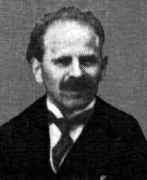Person: Szász, Otto

Otto Szász was a Hungarian mathematician who worked on real analysis, especially Fourier series.
Mathematical Profile (Excerpt):
- In 1933 the Nazis came to power in Germany and Szász was forced out of his chair at Frankfurt.
- Many mathematicians, like Szász, lost their positions.
- Szász, like many others, left Germany and emigrated to the United States in 1933.
- Szász's main work was in real analysis, particularly Fourier series.
- Szász generalised some of Perron's results and also, in 1915, published a paper proving one of Perron's conjectures.
- A few years before Szász began his mathematical researches, Sergei Bernstein had made major contributions to the theory of approximation.
- Bernstein stated a problem concerning the completeness of a certain set of powers on an interval and, although Szász did not solve this problem, he did make contributions which were themselves important in the development of the theory of approximations.
- Other work by Szász made major contributions to questions posed by Landau on the maximum modulus of the partial sums of a power series.
- Some of Szász's contributions to Fourier series related to results proved by Bernstein, Hardy, Littlewood and Fejér.
- All these results were achieved before 1933 and many of the mathematicians we have mentioned, such as Perron, Pringsheim, Edmund Landau, and Fejér were all Szász's personal friends.
- We must not give the impression, however, that Szász did not make any research contributions after emigrating to the United States.
Born 11 December 1884, Alsószúcs, Hungary (now Dolná Súča, Slovakia). Died 19 December 1952, Cincinnati, Ohio, USA.
View full biography at MacTutor
Tags relevant for this person:
Origin Slovakia
Thank you to the contributors under CC BY-SA 4.0! 

- Github:
-

- non-Github:
- @J-J-O'Connor
- @E-F-Robertson
References
Adapted from other CC BY-SA 4.0 Sources:
- O’Connor, John J; Robertson, Edmund F: MacTutor History of Mathematics Archive
